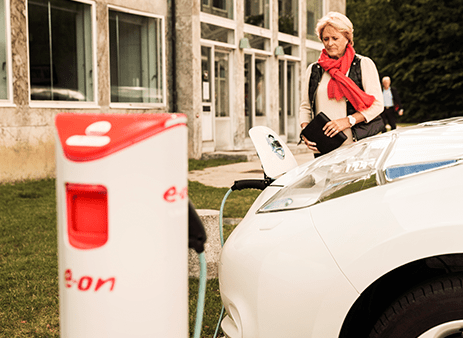Setting a strategic focus on e-mobility, E.ON has established a new business unit to develop and expand Europe’s electric vehicle (EV) charging infrastructure, providing EV owners with a more comprehensive range of services. In addition, the company has announced its intentions to convert its own vehicle fleet to electric power.
According to E.ON, the company will secure attractive locations for charging stations where it can install and operate new charging technology. Working together with partners on implementation, E.ON will offer the customer tailor-made products, such as an opportunity to charge with green electricity or a flat rate that provides for unlimited mobility.
Discussions and tests are already under way.
“We firmly believe in the future of e-mobility and the related potential for growth,” says Karsten Wildberger, a member of the E.ON management board. “By virtue of our core strengths and experiences, we are in an excellent position to succeed in the growing field of e-mobility. We aim to make e-mobility as convenient as possible for our customers.”
In Denmark, one of the most advanced e-mobility markets in Europe, E.ON operates approximately 2,500 charging points and expects 300,000 charging transactions by the end of 2016. In October, E.ON started setting up charging networks in Britain and Sweden and began offering municipalities, as well as individual customers, a variety of e-mobility products, including charging systems and pricing plans. In partnership with the platform, e-clearing.net, drivers of electric cars can already access a live view of charging stations via their navigation systems.
In addition, E.ON is offering companies and municipalities in Germany new charging stations for either sale or lease. E.ON supports these customers applying for subsidies under the German government’s new Charging Station Subsidy Directive, which is expected to go into effect in January.
E.ON has also announced that it will be switching its own vehicle fleet over to electric. The first step will be to gradually convert the existing German network fleet, which consists of 4,500 cars and commercial vehicles.
As reported, 150 EVs have already been procured for this effort during the past few months. Other parts of the company are set to follow.







